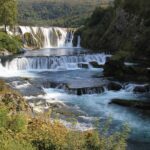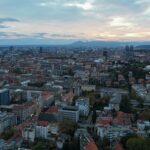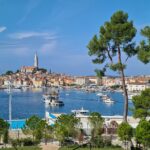Judging from reviews, including one in The New York Times, US literature hasa new star, Courtney Angela Brkic. Her third book ‘First Rule of Swimming’ got excellent reviews, on Amazon.com readers gave it four out of five stars, same is on some other literature portals. Still, why we are writing about this book and its author? It’s simple, most of the book’s plot takes part in Dalmatia, and part is based in Split.
Ms. Brkic writes about three generations of one family with Croatian roots, and their history from 1945 until the turn of the millennium. What is common to them is that all three generations were dislocated from home and roots either because they were victims of the communist regime, or their history was re-written by communists, or they were thrown out of their homes during Balkan wars of the 1990s.
“In her new novel Courtney Angela Brkic conveys all these dislocations with empathy and poetic grace. Her fictional family lives on an imaginary Adriatic island called Rosmarina, a timeless, enchanted place that has incongruously been dragged into the brutal 20th century. The family patriarch, Luka, fought with the partisan guerrillas during World War II. Thirty years later, his son Marin is tortured in a dreadful prison and later flees the country, disappearing into “the rabbit hole of America.” Luka’s daughter, Ana, is no longer “the gentle beauty of her wedding photograph but a nervous woman who ingested the contents of various blister packs.” For mysterious reasons, she has chosen to abandon the island for a squalid urban life with an abusive husband in nearby Split, leaving her two daughters with their grandfather”, says review in The New York Times.
Let’s not reveal too much of this emotional story, NYT’s critic Brooke Allen concludes that Brkic is well qualified to tell this story.
“Her father, like the fictional Katarina’s, escaped Yugoslavia for the United States during the Tito years, and like Katarina, Brkic continues to be haunted by the Croatian childhood she was denied. In 1993, during the Balkan Wars, Brkic took a break from her university studies and visited the country. Later she returned to work as a translator with a team of forensic archaeologists, excavating the Srebrenica killing fields — an experience that inspired her moving memoir, “The Stone Fields,” and her 2003 story collection, “Stillness.””







